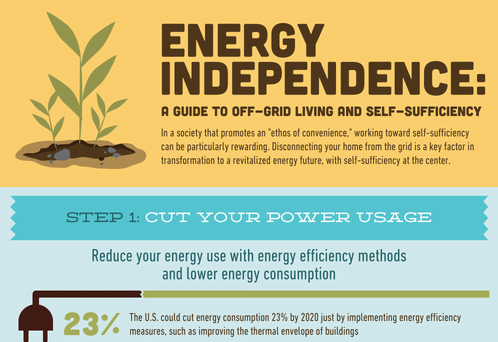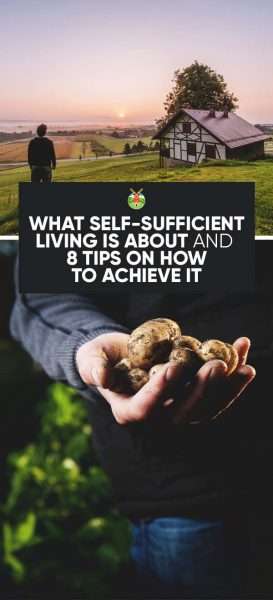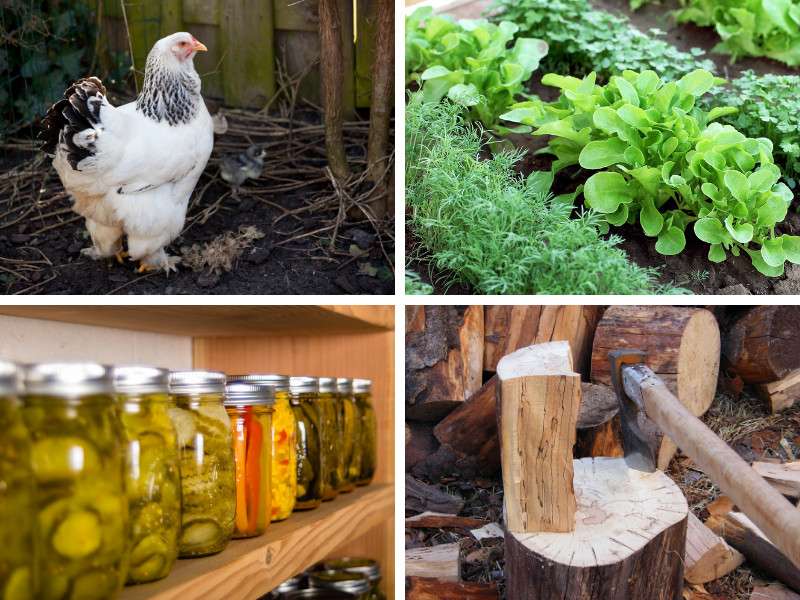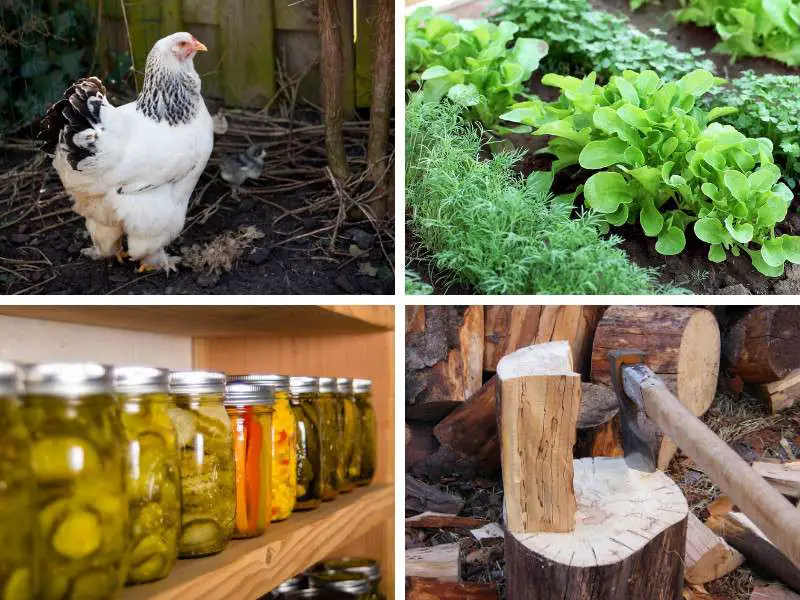In this article, we will be discussing the key to self-sufficient living and what it means to be self-sufficient. We will explore the concept of off-grid living and how it relates to self-sufficiency. By the end of this article, you will have a better understanding of what it takes to live a self-sufficient lifestyle and the benefits it can bring.
The Key to Self-Sufficient Living
Living a self-sufficient lifestyle has become an increasingly popular choice for many people seeking independence, sustainability, and a closer connection to nature. Self-sufficiency entails relying on your own resources, skills, and creativity to meet your daily needs, rather than depending on external systems and services. This article will explore the concept of self-sufficiency, its benefits, and provide guidance on how to develop a self-sufficient mindset, acquire essential life skills, and create a self-sufficient home and community.

Understanding Self-Sufficiency
Self-sufficiency is more than just living off the grid or being able to sustain yourself without the help of others. It is a mindset that embraces autonomy, resilience, and personal responsibility. Being self-sufficient means having the knowledge, skills, and resources to meet your basic needs, such as food, water, energy, and shelter, without relying heavily on external sources.
At its core, self-sufficiency empowers individuals to take control of their lives and reduce their dependency on consumer-driven society. It encourages a simpler, more sustainable way of living, where individuals prioritize their own well-being and the environment.
Benefits of Self-Sufficient Living
There are numerous benefits of embracing a self-sufficient lifestyle. For starters, self-sufficiency promotes personal and financial freedom. By reducing your dependency on external systems, you decrease your exposure to economic fluctuations and rising costs. Instead, you become more resilient and capable of providing for yourself and your family, even during uncertain times.
Additionally, self-sufficiency cultivates a deeper connection to nature. Through practices such as gardening, animal husbandry, and sustainable energy production, individuals develop a profound appreciation for the natural world. It also reduces your carbon footprint and contributes to environmental conservation by minimizing waste and reliance on fossil fuels.
Furthermore, self-sufficient living promotes personal growth and self-reliance. It encourages individuals to acquire new skills, take on DIY projects, and develop a greater sense of resourcefulness. This newfound independence can increase self-esteem, build confidence, and instill a sense of pride in one’s abilities.
Developing a Self-Sufficient Mindset
Developing a self-sufficient mindset is the foundation for successful self-sufficient living. It involves shifting your perception of needs and wants, embracing simplicity, and learning to adapt to changing circumstances. Here are a few key principles to cultivate a self-sufficient mindset:
- Prioritize needs over wants: Focus on meeting your basic needs, such as food, shelter, and water, rather than chasing material possessions that bring temporary satisfaction.
- Embrace minimalism: Simplify your life by decluttering and downsizing your possessions. This allows you to be more mindful of your consumption and reduces your environmental impact.
- Cultivate adaptability: Learn to be flexible and open to alternative solutions when faced with challenges or limited resources. Embracing change and adapting to new situations is crucial in self-sufficient living.
- Continuous learning: Develop a thirst for knowledge and acquire new skills that align with self-sufficiency, such as gardening, animal care, carpentry, or renewable energy systems.
- Community engagement: Engage with like-minded individuals and form connections within a self-sufficient community. Sharing knowledge, resources, and experiences can enhance your self-sufficiency journey and provide valuable support.
Acquiring Essential Life Skills
Becoming self-sufficient requires mastering a range of essential life skills. These skills not only contribute to your self-sufficiency but also increase your overall independence and resilience in life. Here are some key skills to develop:
Sustainable Energy Sources
To reduce dependence on the grid, explore sustainable energy options such as solar panels, wind turbines, or hydroelectric systems. These alternatives can power your home and reduce or eliminate your reliance on fossil fuels.
Growing and Harvesting Food
Establishing a food garden is one of the pillars of self-sufficient living. Learn about organic gardening, crop rotation, composting, and preserving techniques. By growing your own fruits, vegetables, and herbs, you can ensure a fresh and healthy food supply throughout the year.
Raising Livestock and Poultry
For those with sufficient land and resources, raising livestock and poultry can provide a sustainable source of meat, eggs, and dairy. Learn about animal husbandry practices and ensure their welfare while benefiting from your own organic produce.
Water Management and Conservation
Water is a precious resource, and self-sufficiency entails responsible water management. Learn about rainwater harvesting, water filtration, and conservation techniques to reduce your reliance on municipal water sources and minimize waste.

Creating and Maintaining a Self-Sufficient Home
Transforming your home into a self-sufficient haven involves implementing sustainable practices that reduce waste, consumption, and environmental impact. Consider the following aspects:
Sustainable Building and Renovation
Choose eco-friendly materials and designs when building or renovating your home. Ensure proper insulation, efficient appliances, and renewable energy systems to reduce energy consumption and lower your carbon footprint.
Waste Management
Implement a comprehensive waste management system that includes recycling, composting, and reducing single-use items. Minimize waste sent to landfills and strive for a circular economy within your household.
Rainwater Harvesting
Utilize rainwater for household uses such as irrigation, toilet flushing, or laundry. Install rain barrels or larger tanks to collect water during rainy seasons and reduce dependence on mains water.
DIY Projects for Self-Sufficiency
Engaging in do-it-yourself (DIY) projects is an excellent way to enhance your self-sufficiency skills and become more self-reliant. Consider these DIY projects:
Building a Chicken Coop
Constructing a chicken coop allows you to raise your own chickens for eggs and meat. Design and build a coop that ensures the comfort, safety, and well-being of the chickens.
Constructing a Solar Oven
A solar oven harnesses the power of the sun to cook food. Building a solar oven is a fun and practical DIY project that reduces energy consumption while providing you with delicious, sun-cooked meals.
Crafting Natural Cleaning Products
Reduce your reliance on chemical cleaners and create your own natural cleaning products using simple ingredients such as vinegar, baking soda, and essential oils. This DIY project promotes a healthier living environment and reduces exposure to harmful substances.

Establishing a Self-Sufficient Community
Self-sufficiency is not just an individual pursuit but can also be embraced collectively within a community. Forming or joining a self-sufficient community allows for shared resources, knowledge, and support. Consider these steps to establish a self-sufficient community:
- Identify like-minded individuals: Seek out individuals or families who share a similar mindset and are interested in self-sufficient living. Utilize local community groups, online forums, or social media platforms to connect with potential community members.
- Share resources and skills: Establish a system where community members can share resources, tools, and skills. This can include communal gardens, workshops, and knowledge-sharing platforms.
- Collaborate on projects: Undertake collective projects such as building renewable energy systems, community gardens, or food preservation facilities. Pooling resources and efforts can enhance self-sufficiency and foster a sense of community.
Overcoming Challenges in Self-Sufficient Living
While self-sufficient living offers numerous rewards, it is not without its challenges. Here are a few common challenges and strategies for overcoming them:
- Limited resources: Start small and gradually work towards self-sufficiency. Focus on the most important needs first, such as food and water, and expand from there.
- Time commitment: Self-sufficiency requires time and dedication. Prioritize and manage your time effectively by establishing a routine and setting realistic goals.
- Learning curve: Embrace the learning process and be prepared for setbacks. Seeking knowledge, learning from mistakes, and adapting are crucial in overcoming challenges.
- Community support: Engage with like-minded individuals and seek support within a self-sufficient community. Sharing experiences, knowledge, and resources can greatly assist in overcoming challenges.

Preserving and Storing Surplus Resources
Self-sufficiency often leads to surplus resources, such as excess produce from the garden or preserved food. Preserving and storing these resources properly ensures their longevity and availability during times of scarcity. Utilize techniques like canning, pickling, dehydrating, and freezing to store surplus resources efficiently and reduce waste.
Conclusion
Self-sufficient living offers a path towards personal autonomy, sustainability, and a deeper connection to the natural world. By understanding the principles of self-sufficiency, acquiring essential life skills, and fostering a self-sufficient mindset, individuals can create and maintain a lifestyle that prioritizes self-reliance, resilience, and environmental consciousness. Whether you choose to embark on this journey independently or within a self-sufficient community, the rewards of self-sufficient living are abundant. Embrace the key to self-sufficient living and unlock a world of possibilities that reconnects you to nature and empowers you to live a life of freedom and independence.





